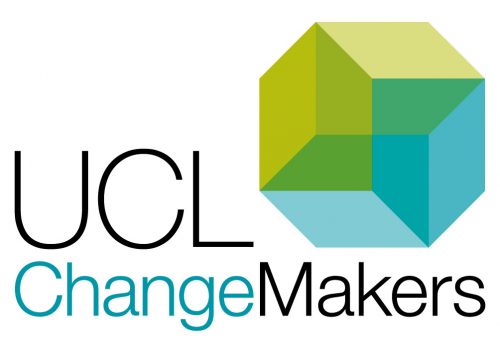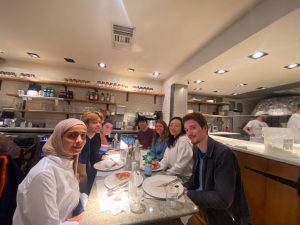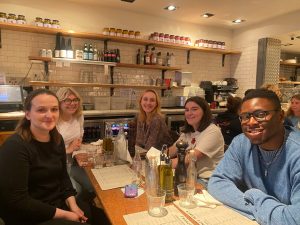THE TEAM
Staff lead: Joanna Faure Walker
Student leads: Rebekah Yore, Candice Oreal
DEPARTMENT
Institute for Risk and Disaster Reduction
WHAT HAPPENED?
We worked together as a team to design and co-create the beginnings of a podcast around disaster themes that could be run in the future as an Institute for Risk and Disaster Reduction podcast. The project included considering how series and episodes could be structured and what topics could be covered. We recorded a pilot episode, including two members of the team, and then a focus group was led by the other team member among current students for feedback about structure, style and content, as well as being used as an opportunity to receive further ideas. Following from the feedback (which was useful and much appreciated), we then proceeded to make some minor amendments to the pilot and record further episodes. We now have a few episodes ready and a plan for the details of the rest of the first season, as well as some exciting ideas for following seasons. Having a staff, PhD student, and masters student work together allowed us to think carefully about different audiences and aims, and to recognise strengths across the team. I hope to have many opportunities to work with the whole team again.
WHAT ADVICE OR ENCOURAGEMENT WOULD YOU GIVE TO SOMEONE THINKING OF DOING A CHANGEMAKERS PROJECT?
Ensure to have a conversation at the beginning about why everyone is participating and what they would like to get out of it. We did this in the first meeting and allowed us to tailor activities and assign tasks in a way to help different team members get the experience in the areas wanted and help them develop the desired skills. Do be realistic about how much can be achieved in the time – it can be tempting to be overly ambitious. Think about what the legacy of the project will be and how to ensure that occurs.


